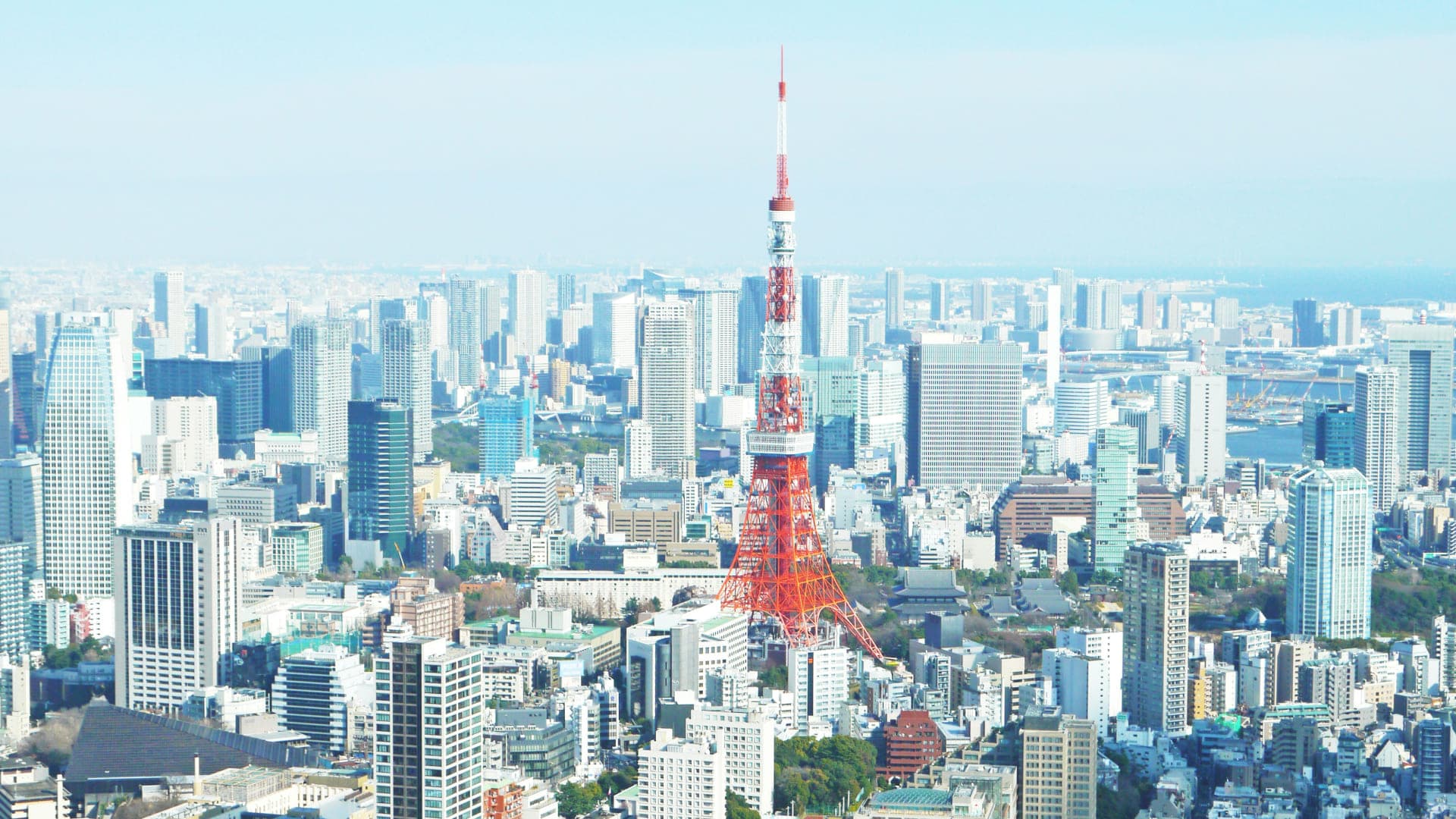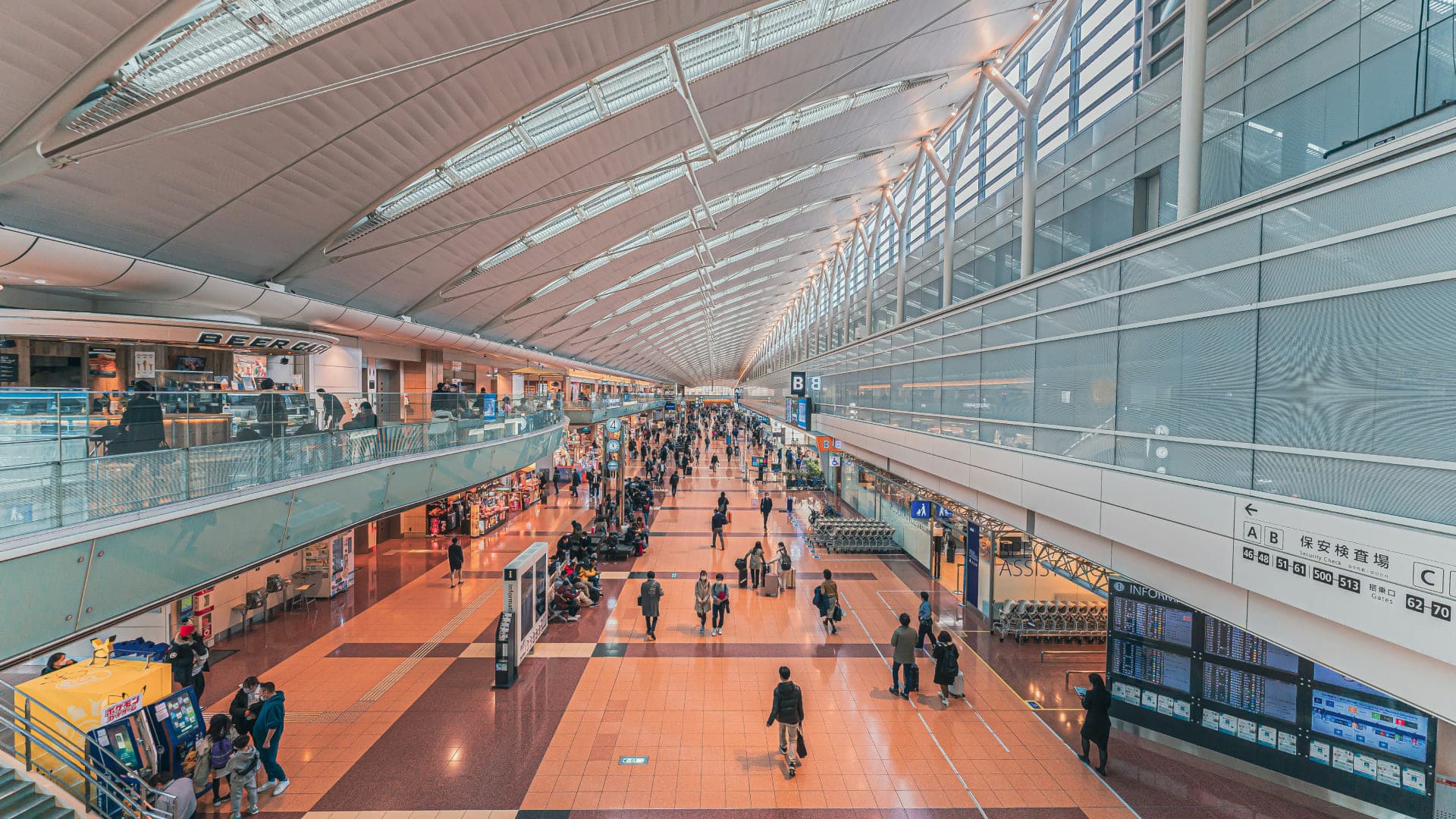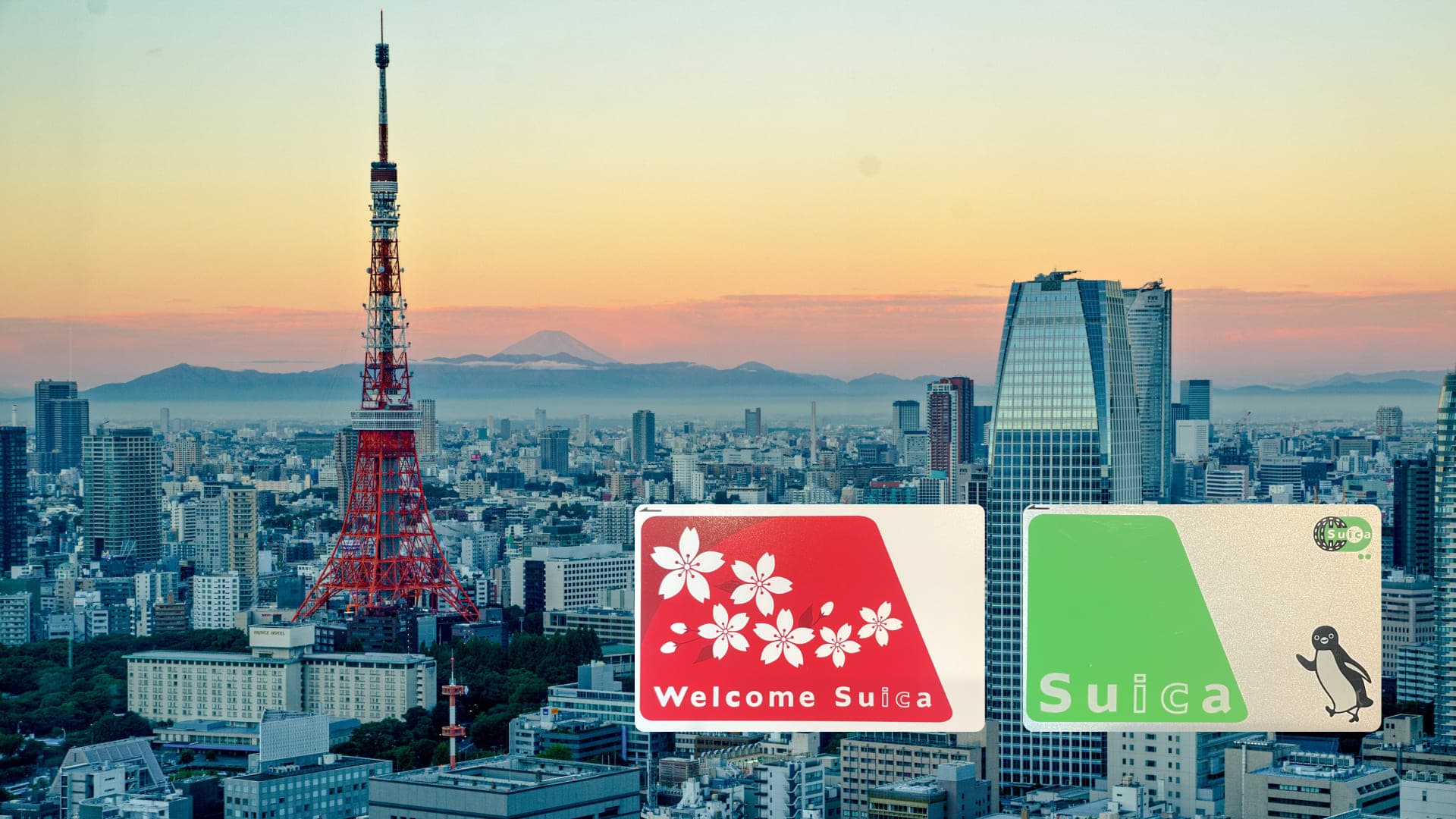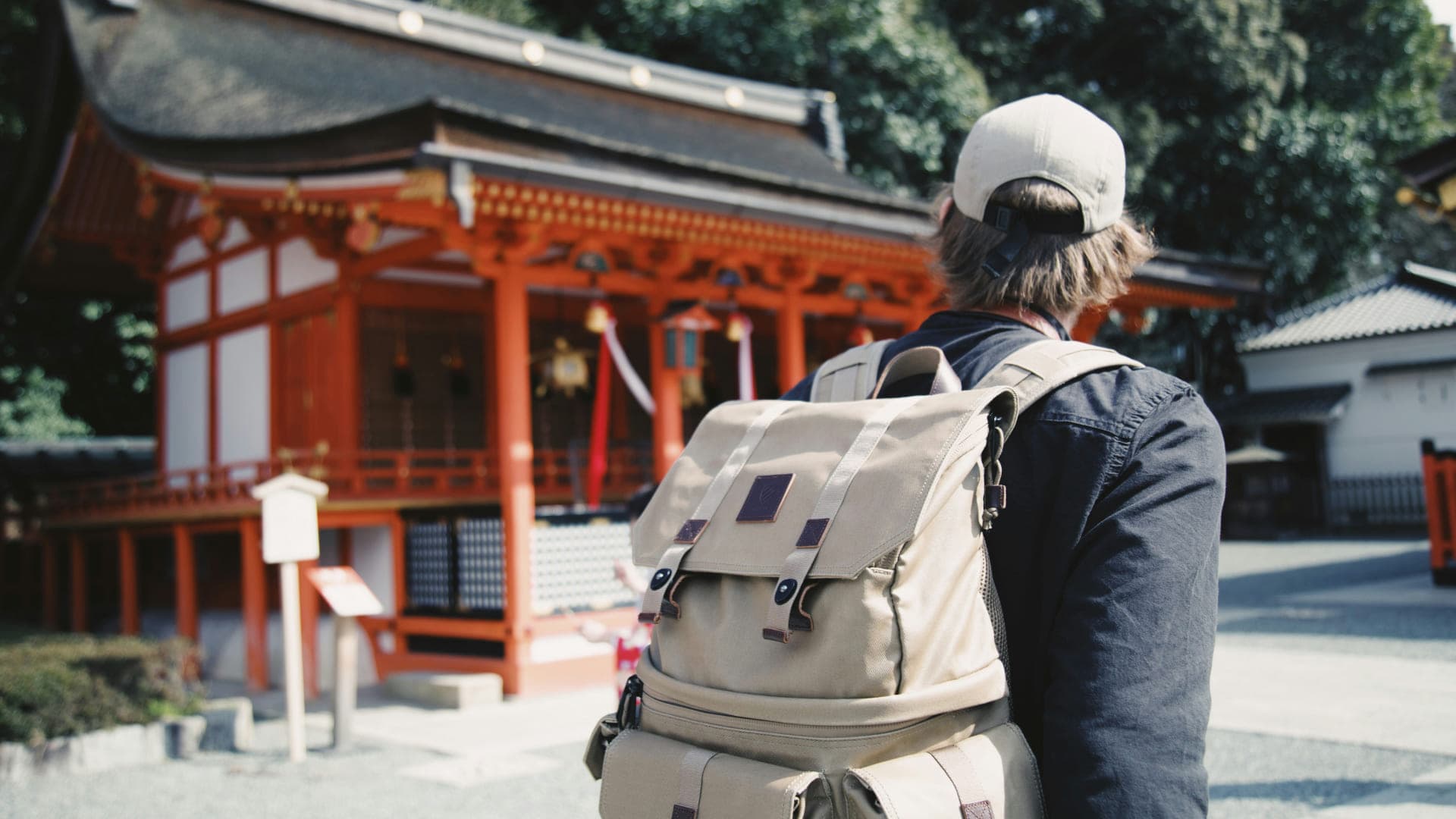40 essential Japanese phrases for your next trip to Japan
Dec 20th 2024
Feb 12th 2025

Are you excited about your trip to Japan but worried because you can't speak Japanese? Indeed, the language barrier can be one of the biggest challenges while traveling. But don't worry!
In this article, we'll introduce carefully selected simple and easy-to-remember phrases that you can actually use during your trip to Japan. Having these phrases under your belt will surely help you create wonderful memories.
You can actually listen to the Japanese audio in this article!
*To listen to the audio, click or tap on the “colored letters with a play button”.
Easy Japanese phrases for immediate use

Let's start with the basics of Japanese communication.
We'll introduce you to simple, versatile phrases that can be used in any situation. Since these are expressions that Japanese people use every day, you'll be understood even if your pronunciation isn't perfect. So don't be shy - practice these phrases!
Basic responses
1 ) "Yes." → Hai.(はい)
This is a useful phrase as it can also be used as a conversational acknowledgment. It's definitely worth remembering!
2 ) "No." → Iie.(いいえ)
Use this when you want to decline someone's question or suggestion. Following 'iie' with your own thoughts can lead to a more constructive conversation.
Greetings
3 ) "Hello." → Konnichiwa.(こんにちは)
This is a versatile greeting that can be used regardless of the time of day, making it the most adaptable greeting. Being able to distinguish when to use this versus "ohayou gozaimasu" or "konbanwa" (explained later) will leave a very good impression as someone who understands Japanese customs!
4 ) "Good morning." → Ohayō gozaimasu.(おはようございます)
Typically used during morning hours (from 5 AM to 11 AM). Be careful not to use it at other times of the day, or people might think you've just woken up! XD
5 ) "Good evening." → Konbanwa.(こんばんは)
Commonly used from evening until late night (from 5 PM to around 4 AM).
6 ) "Nice to meet you." → Hajimemashite.(はじめまして)
Mainly used when meeting someone for the first time.
7 ) "Goodbye." → Sayōnara.(さようなら)
Used when parting ways with someone or leaving a place.
8 ) "Good night." → Oyasuminasai.(おやすみなさい)
Typically used as a formal good night greeting before bed, but can also be used as a nighttime farewell. In the latter case, it carries the nuance of "goodbye" and becomes more casual.
9 ) "See you soon." / "See you again." → Mata, aimashou.(また、会いましょう)
"Mata" means "again." Adding this phrase after "sayōnara" makes a much better impression, as saying just "sayōnara" alone might seem a bit cold!
10 ) "I will be back (again)." → Mata, kimasune.(また、来ますね)
Use this after saying "sayōnara." It's particularly wonderful to say this to restaurant staff or hotel employees after having a good time! When you say this, it makes them happy as they'll think "They want to come back again!"
11 ) "I'm sorry." / "I apologize." → Gomen nasai(ごめんなさい)
Used to express an apology. Carries a deeper sense of regret than the following "sumimasen."
12 ) "Excuse me." / "Sorry." → Sumimasen.(すみません)
Also used for apologies, slightly more casual than "gomen nasai" but still conveys sincerity. Unlike "gomen nasai," "sumimasen" can also be used to get someone's attention or start a conversation.
13 ) "What did you say?" / "Excuse me?" / "Sorry?" → Sumimasen(すみません)
As another usage of "sumimasen," you can raise the intonation at the end to ask someone to repeat what they said. It works similarly to English expressions like "Excuse me?" or "Sorry?" This is a very useful phrase worth remembering!
Self-introduction
14 ) "I am Jonathan." / "My name is Jonathan." → Watashi wa Jonathan desu.(私はジョナサンです)
Used when introducing yourself. Simply replace "Jonathan" with your name. You can also replace "Jonathan" with your occupation to tell people what you do for work. For example, saying "Watashi wa IT engineer desu" tells people you work as an IT engineer, or "Watashi wa nurse desu" indicates you work as a nurse.
15 ) "I came from UK." → Igirisu kara kimashita.(イギリスから来ました)
Use this phrase to tell people where you're from. Grammatically, it works with states or cities as well as countries.
16 ) "I speak only a little Japanese." → Nihongo wa sukoshi shika hanasemasen.(日本語は少ししか話せません)
This phrase lets people know that your Japanese is limited. It's recommended for those who can understand basic Japanese words but aren't fluent.
17 ) "I am not good at Japanese." → Nihongo wa tokui dewa arimasen.(日本語は得意ではありません)
Use this to express that you're not proficient in Japanese. Compared to the previous phrase, this one more strongly conveys that you have difficulty with both understanding and speaking Japanese.
18 ) "I love Japan!" → Nihon ga daisuki desu!(日本が大好きです!)
Japanese people are always happy to hear this phrase, so we're including it here! This is a great way to express your enthusiasm for Japan.
Words of gratitude
19 ) "Thank you." → Arigatō gozaimasu.(ありがとうございます)
This is a phrase to express gratitude. Since it can be used in daily situations, don't hesitate to use it frequently. After all, no one ever feels bad about being thanked!
Useful Japanese phrases by situation
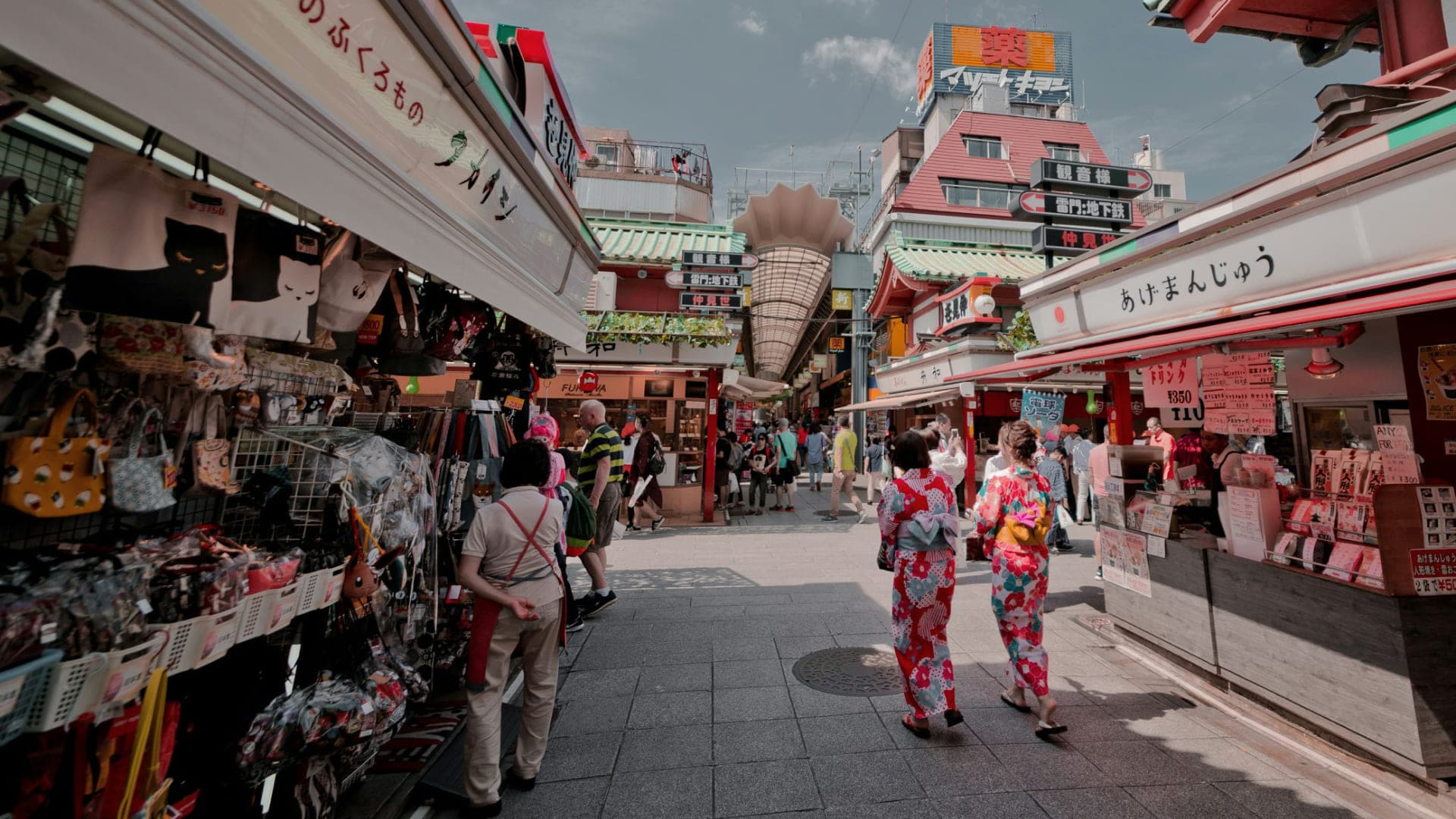
Here are some phrases that are useful to use in various situations while traveling. We have carefully selected those that you will use especially often, so please try them!
Shopping
20 ) "What is this?" → Kore wa nan desuka?(これはなんですか?)
Use this phrase to ask staff about items you're interested in. It's useful not only while shopping but also when dining. A helpful tip is to point at what you're asking about to make it clearer for the other person.
21 ) "How much is this?" → Kore wa ikura desuka?(これはいくらですか?)
Use this when asking about prices. It's particularly useful when there's no price tag displayed. You can also use this phrase to check if something is actually for sale.
22 ) "Can I get this?" / "I'll take it." → Kore o kudasai.(これをください)
A useful shopping phrase. You can use this both when bringing items to the counter yourself or when accepting a staff member's recommendation.
23 ) "Can I pay by credit card?" → Kādo de harae masuka?(カードで払えますか?)
Use this when you want to pay by credit card.
24 ) "Can I pay with Suica?" → Suica de harae masuka?(Suicaで払えますか?)
Use this phrase when paying with "Suica," a transportation IC card in Japan. Suica is an essential card for traveling in Japan as it can be used not only for public transportation but also at convenience stores, restaurants, cafes, pharmacies, and many other establishments.
Restaurants
25 ) "Let's eat." → Itadakimasu.(いただきます)
In Japan, this phrase is always said before starting a meal. It's more than just a signal to begin eating - it carries the meaning of "receiving life" and is an important expression of gratitude for both the ingredients and the people who prepared the food.
26 ) "It was delicious." → Gochisō sama deshita.(ごちそうさまでした)
This phrase is always said after finishing a meal. It's used to express gratitude to everyone involved in preparing the meal. While you can also say "gochisō sama," "gochisō sama deshita" is the more polite expression.
27 ) "Can I have some water, please?" → Omizu o itadake masuka?(お水をいただけますか?)
Use this phrase to ask staff for water.
28 ) "Do you have sake available?" → Nihon shu wa arimasuka?(日本酒はありますか?)
Use this to ask if a restaurant or establishment serves sake. You can replace "Nihon shu" with "Beer (Bīru)" or "Whisky (Uwisukī)" to ask about other drinks in the same way.
29 ) "It is delicious!" → Oishī desu!(美味しいです!)
If the food you're eating impresses you, don't hesitate to express it with this phrase. The person receiving this compliment will surely be delighted!
Transportation
30 ) "Can I go to Shibuya by this train?" → Kono densha de Shibuya ni ikemasuka?(この電車で渋谷に行けますか?)
Use this phrase to ask whether the train (or train line) you're about to board will take you to your destination. You can replace "train (densha)" with "bus (basu)" to ask if a bus will take you to your destination.
Asking for directions
31 ) "Where is the nearest station?" → Chikai eki wa doko desuka?(近い駅はどこですか?)
Use this phrase to ask about the location of the nearest station (or station entrance).
32 ) "I want to go to Shibuya." → Shibuya ni ikitai desu.(渋谷に行きたいです)
While this phrase simply states where you want to go, it's understood as asking for directions to that place.
Important phrases for emergencies
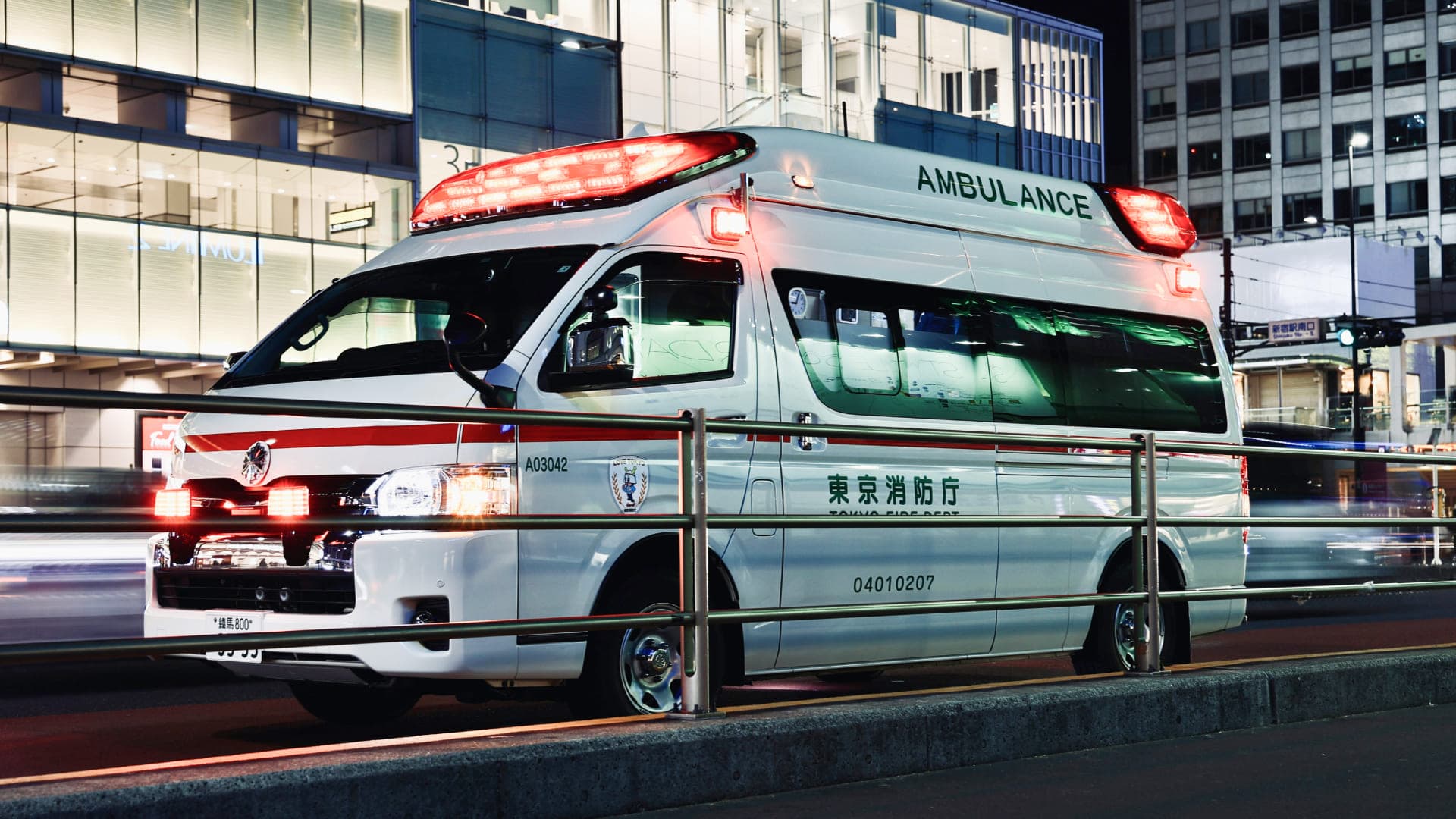
Sudden illness, and natural disasters unique to Japan like earthquakes and typhoons... unexpected problems can happen to anyone during international travel. In particular, Japan is no stranger to natural disasters such as earthquakes and typhoons. Knowing phrases to use in these emergency situations will help you stay calm when the unexpected occurs.
Emergency situations
33 ) "Help!" → Tasukete!(たすけて!)
Use this phrase to call for help from people around you. While it's rarely needed, you can use it when you sense immediate danger.
34 ) "Call the police!" → Keisatsu o yonde kudasai!(警察を呼んでください!)
Use this when you need someone to call the police.
35 ) "Call an ambulance!" → Kyūkyūsha o yonde kudasai!(救急車を呼んでください!)
Use this when you need someone to call an ambulance.
36 ) "It hurts!" / "Ouch!" → Itai!(痛い!)
Use this phrase to express pain.
Health issues
37 ) "I think I have fever." → Netsu ga arimasu.(熱があります)
Use this to tell someone you have a fever. The same phrase can be used to mean "She has fever" or "He has fever" as well.
38 ) "I have a headache." → Atama ga itai desu.(頭が痛いです)
Use this phrase when you need to tell someone you have a headache.
39 ) "I want to go to the hospital." → Byōin ni ikitai desu.(病院に行きたいです)
Use this when you need to communicate that you need to go to the hospital (Byōin). If you're feeling seriously unwell, don't hesitate to ask someone nearby to call an ambulance immediately.
40 ) "Does anyone speak English?" / "Do you have an English speaker?" → Eigo o hanaseru hito wa imasuka?(英語を話せる人はいますか?)
Communication in emergencies goes more smoothly if you can find someone who speaks English. Don't hesitate to ask if there's someone who can help with English communication.
Tips for better communication
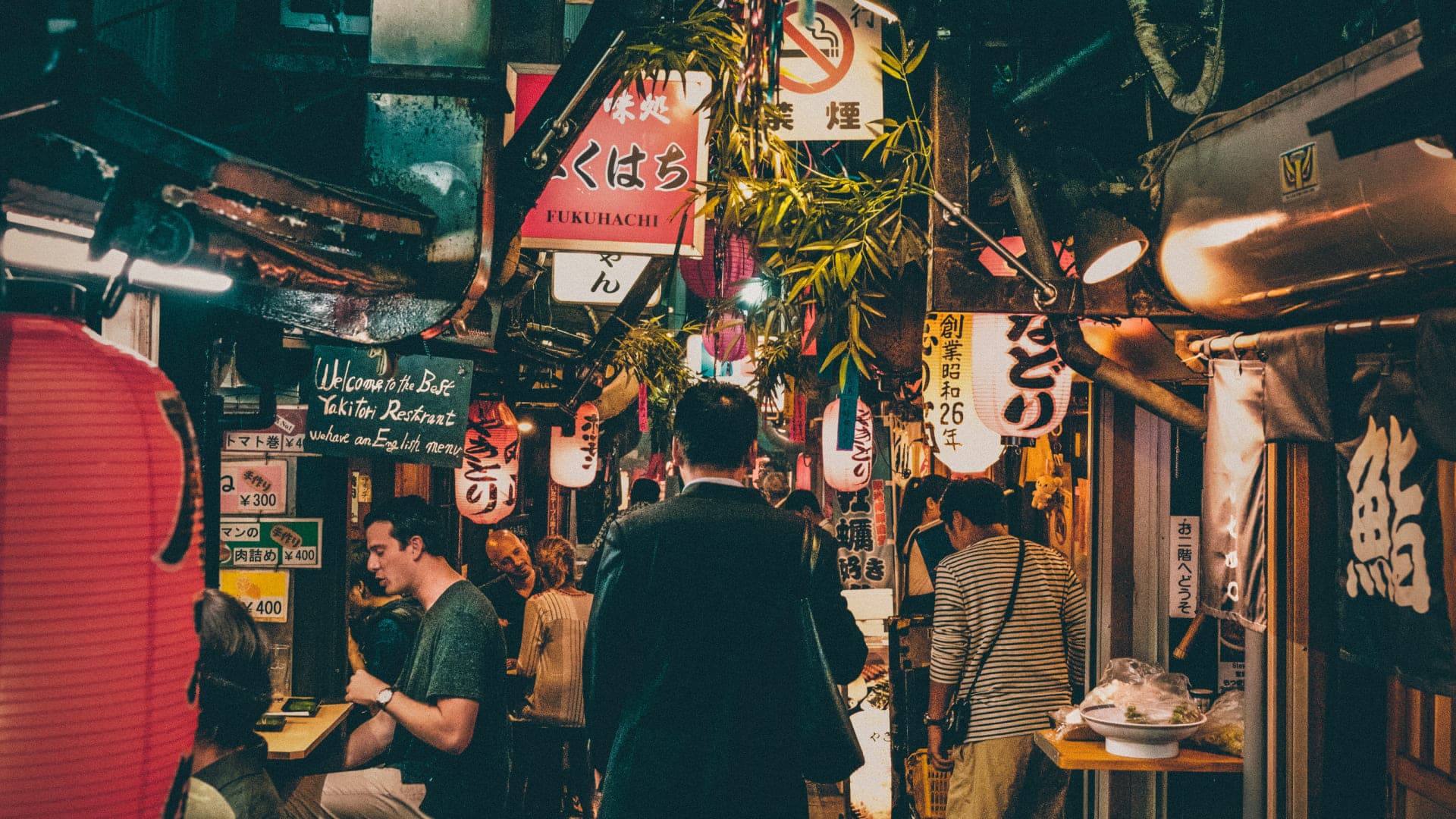
While we've introduced many useful Japanese phrases, you don't need to memorize them all perfectly. Verbal communication isn't the only way to get your message across. Here, we'll introduce specific methods for smooth communication with Japanese people, even when you can't immediately recall the perfect Japanese phrase for the situation.
Make use of translation apps
Translation apps can be helpful in various travel situations. They're particularly recommended when you want to avoid misunderstandings or when you need to express your feelings accurately in Japanese.
While Google Translate is well-known, DeepL is another excellent option. Both can be accessed through web browsers with an internet connection, but having the apps downloaded on your device provides quick and convenient access.
Personally, I find that DeepL offers a wider range of expressions and seems to better capture subtle nuances. Don't hesitate to make full use of translation apps!

(Download link)
▼App Store (iOS):
DeepL: translate & write
▼Google Play (Android):
DeepL: translate & write
Don't worry about broken Japanese
The most important thing in communicating with Japanese people is "don't be shy."
Don't worry if you can't speak perfect Japanese. Japanese people are very kind to foreign tourists and are delighted when visitors make an effort to communicate.
What I personally call "Japan-glish" - mixing Japanese and English - can be remarkably effective. For example, to say "she is my daughter" in Japan-glish, you would say "Kanojo wa 'my daughter' desu." You can say "please give me water" as "Mizu o please," and "where is the bathroom?" as "Toire wa where desuka?"
This level of communication is perfectly sufficient to get your message across, so don't hesitate to give it a try!
Try communicating with gestures
While it might seem obvious, gestures are extremely effective tools in interpersonal communication.
Whether your message gets across correctly may depend on the quality of your gestures, but making a sincere effort to communicate will certainly encourage others to listen more attentively and lead to more back-and-forth in your conversations.
Finally
How did you find these tips?
By using the phrases and communication strategies introduced in this article, your trip to Japan is sure to become even more enjoyable. You don't need perfect Japanese. Japanese people are very kind to foreign tourists and are delighted by any attempt to communicate, even if the Japanese isn't perfect.
What's truly important is your willingness to interact with the people of Japan. Please enjoy Japan's charm in your own way!
Thank you for reading to the end.
See you in the next article!
